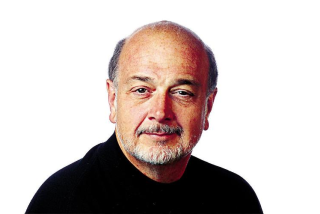L.A. Times Columnist Wins Loeb Award
Los Angeles Times business columnist Michael Hiltzik won the 2004 Gerald Loeb Award for commentary for a collection of his Golden State columns.
The judges said Hiltzik’s columns were “smart, angry and sometimes laugh-out-loud funny, tackling complex subjects in a lively, accessible style with a strong voice and a real sense of being on the reader’s side.”
The Loeb awards, founded in 1957 by Gerald Loeb, a founding partner of E.F. Hutton, recognize journalists who have made “significant contributions to the public’s understanding of business, finance and the economy” and are considered the most prestigious in financial journalism.
For Hiltzik, 51, the Loeb is his second major journalism honor. In 1999, he and Times reporter Chuck Philips won a Pulitzer Prize for beat reporting for a series of stories on corruption in the entertainment industry.
The Wall Street Journal won three Loebs: for deadline writing on the resignation of New York Stock Exchange Chairman Richard Grasso by Susanne Craig, Ianthe Jeanne Dugan, Theo Francis and Kate Kelly; for beat writing on Boeing Co.’s legal troubles by J. Lynn Lunsford, Andy Pasztor and Anne Marie Squeo; and for editing by Michael Siconolfi, senior editor, financial investigative projects.
Among the other winners were David B. Ottaway and Joe Stephens of the Washington Post; Fred Schulte of the South Florida Sun-Sentinel; Kate Long of the Charleston Gazette; and Aaron Bernstein, Pete Engardio and Manjeet Kripalani of Business Week magazine.
Adrian Cox, David Evans and Abhay Singh of Bloomberg News; Chris Adams and Alison Young of the Knight Ridder Washington bureau; and Rome Hartman and Lesley Stahl of the “60 Minutes” news program also won.
Television commentator Louis Rukeyser received a lifetime achievement award.
The UCLA Anderson School of Management has administered the Loeb awards since 1973.
More to Read
Inside the business of entertainment
The Wide Shot brings you news, analysis and insights on everything from streaming wars to production — and what it all means for the future.
You may occasionally receive promotional content from the Los Angeles Times.










